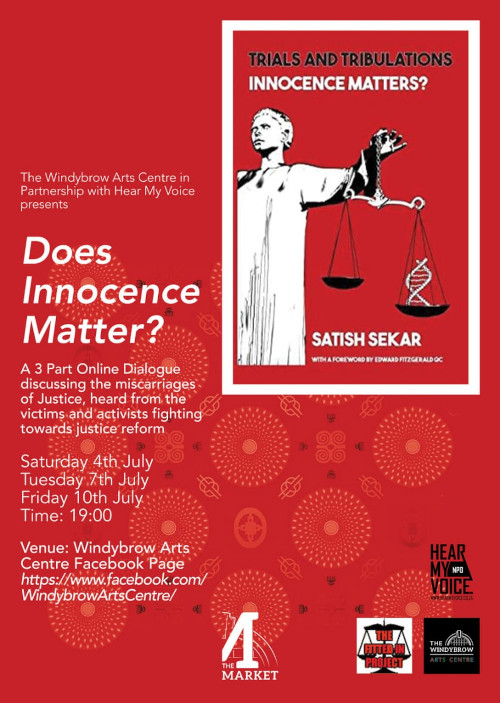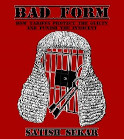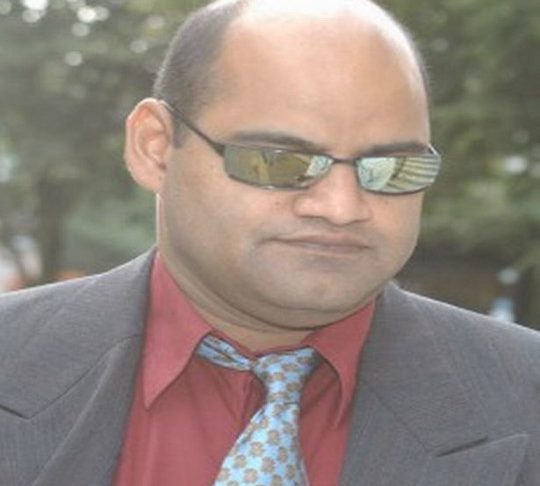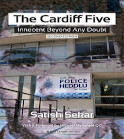
The Tariff Fiasco
March 14, 2025
Words Are Not Enough
March 16, 2025By Satish Sekar © Satish Sekar (March 15th 2025)
Incredible
The Secretary of State for Justice, Shabana Mahmood MP, has had a private meeting with the Sentencing Council during the week. One sentencing issue – the most important – was almost certainly not discussed. My forthcoming book Bad Form: How Tariffs Protect the Guilty and Punish the Innocent, which will be published later this year, will detail the numerous flaws in the system of punishment for the most serious of crimes, murder.
The Lynette White Inquiry is far from unique – the rare feature is that so much went wrong in the one case. One of the many resounding failures in that case is the tariff that was imposed on the real murderer of Lynette White, Jeffrey Gafoor. It was shamefully lenient – just 13 years. That was below the minimum starting point and happened in a case that involved very serious aggravating factors, such as the appalling brutality of a grotesque sexually-motivated murder and that the murderer had also allowed five innocent men to serve a total of 16 years in prison between them for his crime.
Miserable Failings
Since 1988 – fifteen years before Jeffrey Gafoor was brought to justice – the Attorney General has had the power to refer cases to the Court of Appeal to challenge what he or she believes to be unduly lenient tariffs. However, Baron (Peter) Goldsmith, the Attorney General at the time, chose not to use those powers.
Presumably, this means that Baron Goldsmith believed that a paltry 13 years for such a brutal crime – a tariff that was five years lower than the innocent Yusef Abdullahi received for the same crime – was not unduly lenient, but how could that meagre tariff possibly not meet the criteria for undue or even excessive leniency?

Such a low tariff appears to be an insult to the memory of Lynette White and also the victims of one of the most notorious miscarriages of justice in British history, the Cardiff Three (the late Yusef Abdullahi and Tony Paris and the sole survivor of the three, Stephen Miller, or more accurately, the Cardiff Five (the cousins, Joh Actie and the late Ronnie Actie) were acquitted at the 1990 trial – the Cardiff Three were convicted in November 1990. Presumably, it also meant that Goldsmith believed that not even using the minimum starting point for a tariff, referred to in Schedule 21 of the Criminal Justice Act of 2003, was acceptable to the point that it did not make the tariff unduly lenient. That occurred even though it is clear that other judges followed the starting points outlined in Schedule 21 when they were dealing with crimes from the time period that Royce had referred to.
Presumably, it also meant that the restrictions placed by judges on the amount that could be allowed for aggravating factors – one third of the starting point – were set in stone. However, Schedule 21 makes it clear, and still does, that there is no limit on what the judge may consider to be an aggravating factor or the amount that he or she may allocate for it. Somehow, judges keep doing this and no Attorney General has ever challenged tariffs that wrongly apply a limit to these factors.
Grotesque
Do we really want a system that rewards vicious criminals through the failure of judges to utilise the powers that Parliament gave them? And are we satisfied with a politician appointed to oversee the law, the Attorney General failing to refer such cases to the Court of Appeal to assess whether these tariffs were in fact unduly lenient? And what about bodies like the Sentencing Council and Law Commission – when will they look at these issues? Perhaps Parliament’s Justice Committee should look at the Ministry of Justice’s handling of these issues. Is the public receiving justice and value from these bodies, or are we just expected to fund these institutions with no guarantee of justice or fiscal responsibility in return?
It cannot be coincidence that not one judge has ever used their Schedule 21 powers to ensure that the tariff imposed in vindication cases reflects the seriousness of those cases – not one. Are all of the victims not deserving of justice? Are they the wrong type of victims? The performance of the criminal justice system in these cases suggests that all the victims are expected to suffer injustice piled upon injustice.

In Lynette’s case, Mr Justice Royce did not deem a grotesque sexually-motivated murder of over 50 stab wounds, half of which were to her breasts and her throat was cut to the spine and innocent men were robbed of a total of 16 years of their lives, to be a murder where the seriousness of the crime was particularly high – see the wording for a 30-year starting point in Schedule 21.
The day the seriousness of Lynette’s murder is not considered particularly high is the day the law is proved to be a complete ass and barbarism has definitively triumphed over civilisation.
So, who reviews this to ensure that the law is working as intended?
According to the Sentencing Council, tariffs for murder does not come under its remit. Really? So, what is the point of a body funded by the public through the Ministry of Justice that has never considered whether the sentencing of the most serious crime – one that carries life imprisonment, even if that is rarely the actual sentence served – is adequate? Worse still, it has no intention of ever considering it. Shame on it and shame on those who fail to hold it to account.



